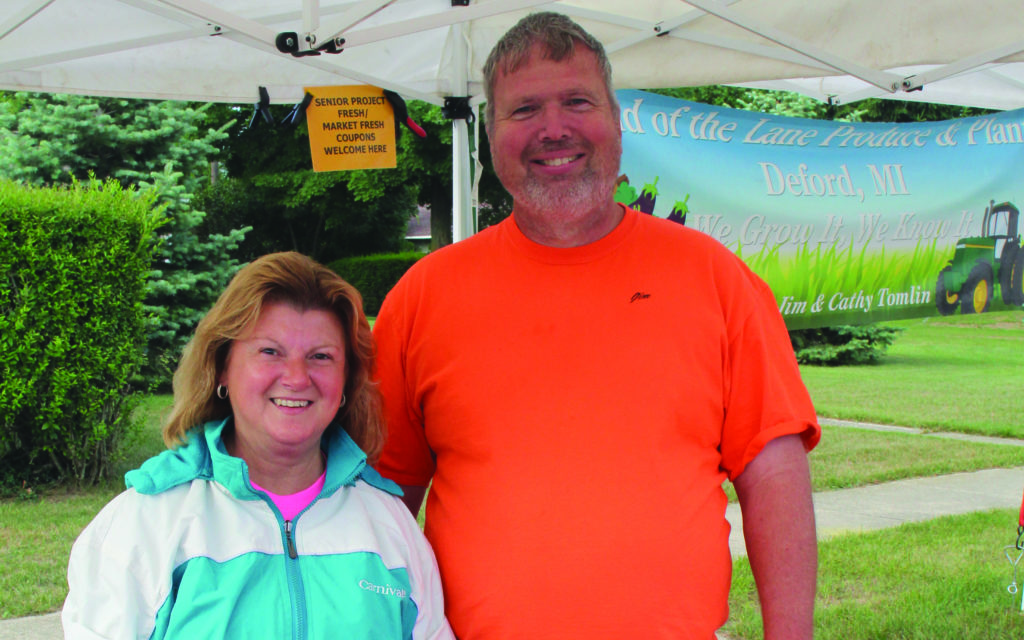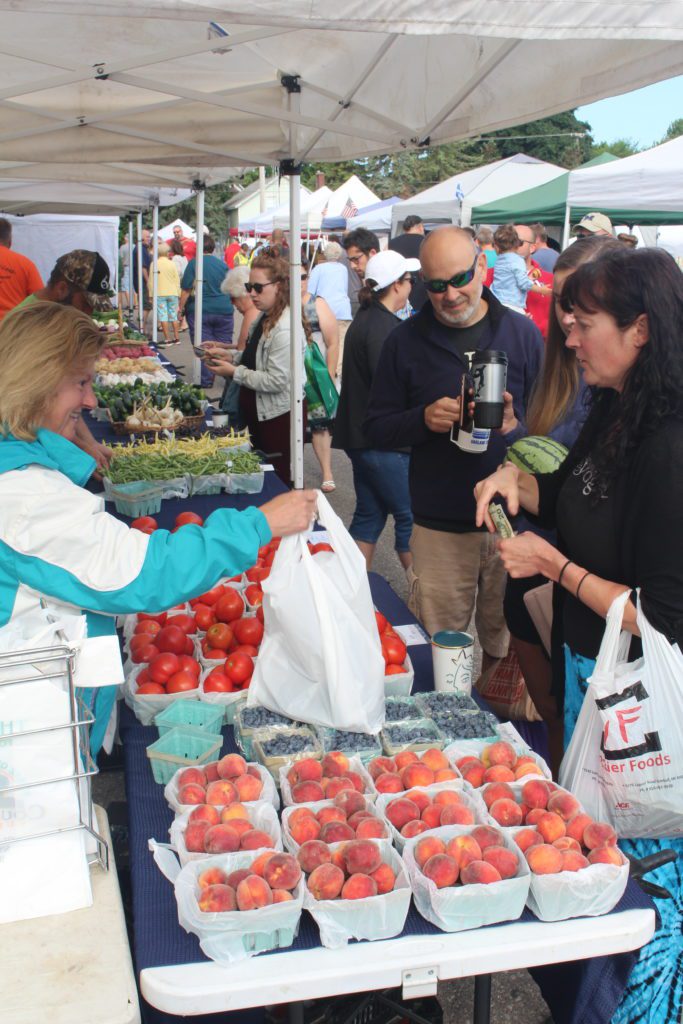

May 20, 2019Greenhouses, farm markets a new career for Michigan man
The hard work of having a greenhouse may not appeal to most people, but it was a new beginning for Jim and Cathy Tomlin of End Of The Lane Plants and Produce of Deford, Michigan.
“I grew up in Detroit and farming was new to me,” Jim said. “I grew up in the city, but my family had hunting property up at Deford.” Deford is a tiny community in the eastern Thumb region of Michigan.
The first greenhouse was bought in 2012 as a part-time project. “Having a farm market was interesting, and it was some extra spending money,” Jim said. “It worked so well, we kept branching out in different areas.”
Eventually a layoff from the auto industry came and that was the nudge that made End Of The Lane Plants and Produce a full-time business.
The operation has grown to five greenhouses. Four are heated hoop houses for herbs and vegetables, and one is a greenhouse for floriculture. Basil, rosemary, spearmint, parsley, oregano and dill are the main herbs grown and a continual, timely harvest is a key to growing them.
“You’ve got to keep up on trimming them,” Jim said. “You don’t want them to get ahead of you.” Herbs will continue making shoots when trimmed and those shoots are the most flavorful and are what customers want to buy.


“We have a lot of customers with an average age of 30 to 35,” Jim said. “These are young families who want to cook healthy, but still want to have food with good flavor.” The greenhouse also sells herb transplants since some customers want their own little herb garden in containers on their porch or deck.
“Herbs are easy to grow, as long as you know the conditions they need,” Jim said. “We’re a small community and people want good quality food.”
Tomatoes, peppers, cucumbers, pickles, onions and all types of winter squash are the main vegetables grown. End Of The Lane Plants and Produce also grows more unique items like banana peppers and other hot peppers. Tomatoes transplants are planted in a hoop house early – late February or early March – to target the early market.
Deford is close to Lake Huron, which puts it in the lake-effect snow belt of the Great Lakes. “We use wood heat,” Jim said. “Getting up every three or four hours every day to stoke the fire is a lot of work. With a greenhouse, you’re on 24/7 and working hard is a requirement.”
The floriculture is important because it gets customers to come out to the greenhouse early in the season. “We open the week before Mother’s Day, but it really starts Memorial (Day) weekend,” Jim said.
The operation grows and sells bedding plants and flower transplants. End Of The Lane Plants and Produce also sells up to 1,000 hanging baskets in both 10-inch and 12-inch sizes. Petunias, Superwave petunias, and a wide variety of dahlias and Washington geraniums are some of the flowers sold. The floriculture season lasts about six weeks.
The Lake Huron shoreline is a recreation area with many tourists and summer residents. Port Austin is on the shoreline at the tip of Michigan’s Thumb. Its Saturday farmers’ market has up to 150 vendors, draws hundreds of people and the Tomlins make sure they attend.
“A farm market is about recognition and about reputation,” Jim said. “We want people to see us so we’re there at the beginning and stay to the close.”
The Tomlins are also at Port Austin’s Wednesday farmers’ market which is smaller and more targeted toward local residents. They also market at the Cass City farmers’ market on Thursday and the Marlette farmers’ market on Friday.
“It’s a lot of work,” Jim said. “I don’t think people really realize how much work it is, but they all want to talk to us and know who we are. People want to know what’s in their food.”
– Dean Petersen, VGN correspondent
Above, Jim and Cathy Tomlin own End Of The Lane Plants and Produce of Deford, Michigan. Photo: Dean Peterson














